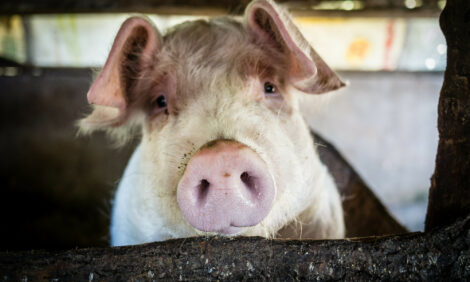



New Studentships Use Science to Boost Industry Efficiency, Know-how
UK - Safeguarding product quality and boosting farm productivity are the clear themes to emerge from a 31.4m round of studentships under a restyled research programme from the Agriculture and Horticulture Development Board (AHDB).A total of 19 three to four-year PhD projects, starting from 2014, have been awarded funding as part of the new-look studentship programme run by AHDB to grow new industry talent and deliver science with practical industry benefits – a call made to the industry by government in its recently launched Agri-Tech Strategy. The programme is also a cornerstone of AHDB’s commitment to skills made under the industry’s AgriSkills Strategy – Professionalism in Agriculture – launched in London only a fortnight ago.
Newly harmonised to cover all agricultural and horticultural sectors, this fresh AHDB initiative has brought together the different sector studentship programmes previously run independently by the levy board’s six divisions (see ‘notes to editors’ below). The programme has reinforced the search for good science that gives the industry not only the necessary knowledge and information but also the training it needs for the next generation of scientists if it’s to meet the growing demands and sustainability challenges of the 21st Century.
Included in the programme’s first wave of studentships are a number of projects that aim to control farm animal disease, as well as a range of studies focused on crop protection and improving plant quality. Here is the complete line-up of projects commencing in 2014:
| AHDB studentship projects – starting 2014 |
|---|
| Development of a pen-side diagnostic test for liver fluke infection in sheep and cattle. Fluke causes severe clinical disease, death and costs the industry £millions in lost productivity Liverpool University – Supervisor: Prof Diana Williams |
| Development of molecular tools to promote the rapid assessment of benzimidazole resistance relating to treatment of Nematodirus battus populations – parasitic worms found in lambs Moredun Research Institute – Supervisor: Dr David Bartley |
| Genetic and genomic analysis of immune traits in dairy cattle Scotland’s Rural College (SRUC) – Supervisor: Dr Eileen Wall |
| Improving the efficiency of pig production systems and feed efficiency in straw based systems by sorting pigs at weaning Newcastle University – Supervisor: Dr Ilias Kyriazakis |
| Development of novel sensor technology for boar taint detection to assist the production of taint-free pork University of West of England – Supervisor: Prof Olena Doran |
| The contribution of oocytes and follicular fluid to pig fertility Edinburgh University – Supervisor: Prof Cheryl Ashworth |
| Investigating the cause and potential treatment of declining coriander yield Newcastle University – Supervisor: Dr Ian Singleton |
| Curcubit pollination: mechanisms and management to optimise field crop quality and quantity Exeter University – Supervisor: Dr Juliet Osborne |
| Sensor-based pre-symptomatic detection of pests and pathogens for the precision scheduling of crop protection products Lancaster University – Supervisor: Dr Martin McAinsh |
| Understanding the impact of phylloplane biocontrol agents on insects Reading University – Supervisor: Dr Robert Jackson |
| Moving towards precision inputs through better understanding of the causes of in-field variation in crop maturity and yield Harper Adams University – Supervisor: Dr Jim Monaghan |
| Identifying viral pathogens suitable for controlling fruit crop pest Drosophila suzukii (a vinegar fly) Edinburgh University – Supervisor: Dr Darren J Obbard |
| To exploit new information about resistance and genome sequences to improve the control of light leaf spot in brassicas eg oilseed rape, Brussels sprouts Hertfordshire University – Supervisor: Prof Bruce Fitt |
| Understanding interactions between Ramularia collo-cygni and barley leaf physiology to target improvements in host resistance and disease control strategies Scotland’s Rural College (SRUC) – Supervisor: Dr Ian Bingham |
| Understand genetics of wheat yield to deploy high and stable yielding wheat varieties across UK John Innes Centre – Supervisor: Dr Cristobal Uauy |
| Understanding the persistence, transformation and fate of CIPC (Chlorpropham) in commercial potato stores to help guard against cross-contamination Glasgow University – Supervisor: Dr Gillian MacKinnnon |
| To improve timing of curative blight fungicides to improve fungicidal control of late potato blight Scotland’s Rural College (SRUC) – Supervisor: Dr Ruairidh Bain |
| Identify novel metabolic markers which can be used to optimise storage, aid breeding schemes and control dormancy in potatoes Sheffield University – Supervisor: Prof Andrew Fleming |
With its six divisions historically funding a total of 15-20 new projects each year, and around 50-60 at any one time in the three to four-year cycle, AHDB is looking to maintain the same scale of projects and investment as previous years.
“We are taking a much more strategic approach to the type of studentships we support, managing them under one cross-sector, co-ordinated programme that is closely integrated into our broader R&D objectives,” said Kim Matthews, Head of Research and Development for EBLEX, AHDB’s beef and lamb division, and chair of the levy board’s joint studentship programme.
“We will look to attract and develop high quality people and high quality projects, using our studentships to raise the profile of agricultural and horticultural R&D with the young science community. This is the key to securing the levels of excellence able to drive the future of our industry as it responds to the critical challenge to produce more food for a growing world population while using fewer resources.”






